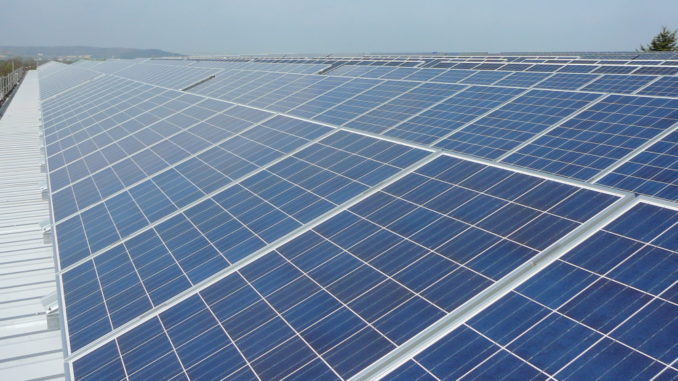
A plan to power almost a third of the households in Hambleton with clean renewable energy by creating a solar farm has met with a wall of opposition.
While Lightrock Power and Econergy say their proposal to generate 45,000 MWh of electricity per year at Woolpots Solar Farm, near the ancient village of Husthwaite, could power 10,146 homes in Hambleton, the site is in the shadow of the North York Moors National Park, the Howardian Hills Area Of Outstanding Natural Beauty as well as ancient village conservation areas.
As a consequence, the plan being considered by Hambleton District Council on Thursday has seen organisations ranging from Historic England to the Civil Aviation Authority raising serious concerns.
Following a local outcry the scale of the venture was cut to an area of farmland the equivalent of about 500 Olympic swimming pools.
The firm’s application states the development has been designed to minimise visual impact on the landscapes overlooked by the national park and AONB, glint and glare and impacts on heritage assets.
It adds: “The development will make a substantial contribution to the overall supply of affordable low-carbon renewable energy, making a contribution to the aims of the UK Renewable Energy Roadmap, UK Solar PV Strategy, UK Clean Growth Strategy, Draft Integrated National Energy and Climate Plan and the legally binding Net Zero 2050 emissions target.”
Some residents of nearby villages have backed the scheme, saying it would “help to eliminate carbon emissions and reduce the price of electricity
generation”.
Supporters of the scheme have claimed solar panels are one of the least disruptive methods of energy production, and argued that “compared to planting trees they have very little effect on the land”.
However, of the hundreds of responses over the scheme, the overwhelming majority are fiercely opposed to the development.
Historic England, which initially raised concerns over the solar farm leading to the “coalescence of the surrounding conservation areas and settlements”, said the revised scheme would create an unacceptable amount of harm to heritage assets and village conservation areas.
Objecting to the plans, the Campaign for Rural England said the farm would lead to a significant loss of top quality farmland. Many objectors have said the high grade agricultural land is needed for domestic food production, at a time when food security has become even more pressing.
Both the national park authority and the AONB said the solar farm would represent an incongruous large-scale development in a rural landscape.
Meanwhile, the Civil Aviation Authority has raised concerns over the safety of aircraft in the area from the solar panels’ glare, particularly as 33 small single engine aircraft are hangared at nearby Baxby Aerodrome.
Recommending the scheme be refused, planning officers said the cumulative impact on productive farmland, the aerodrome, landscapes and heritage assets meant the scheme’s significant public benefits did not outweigh the harm they would cause.


Be the first to comment